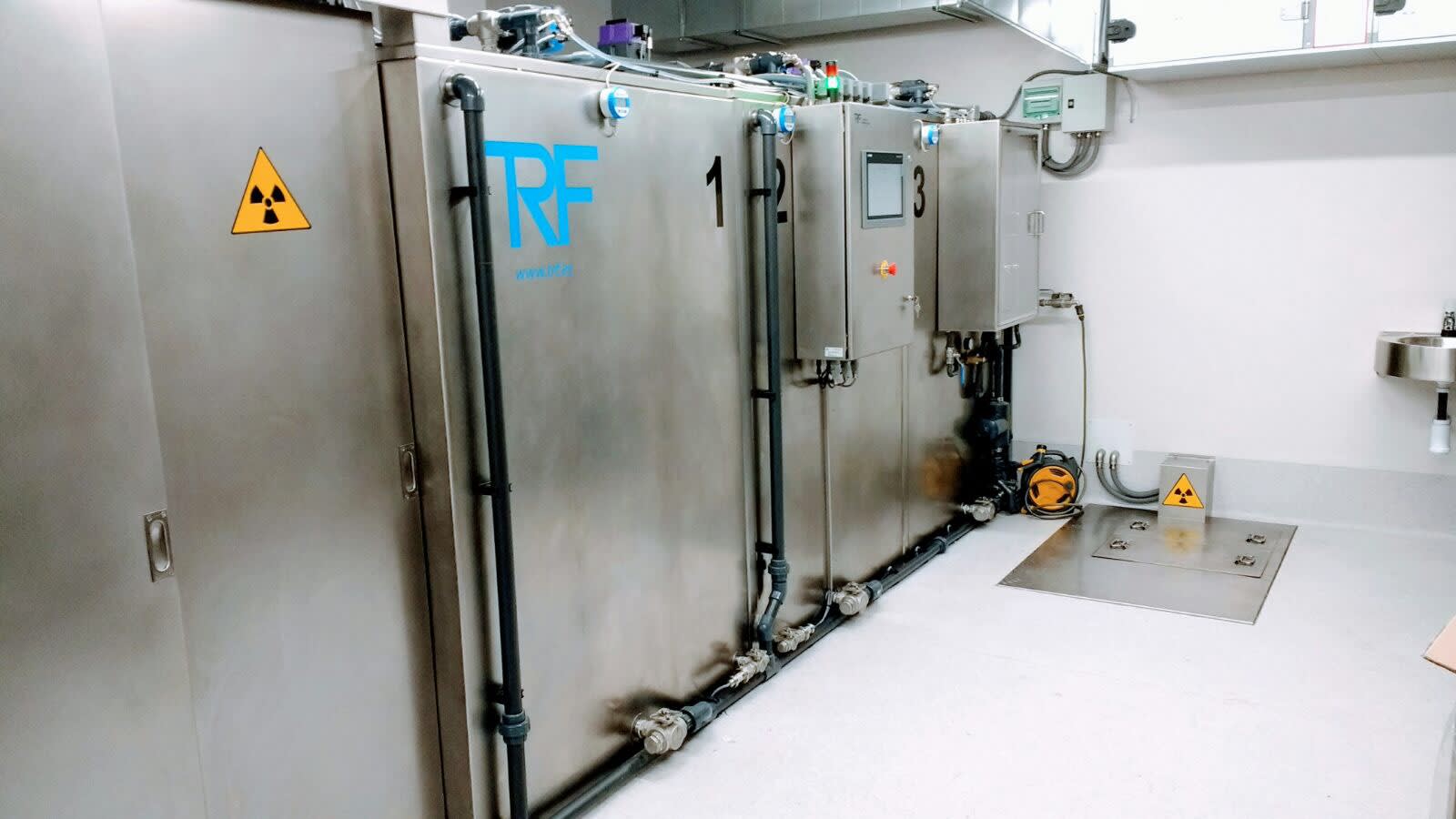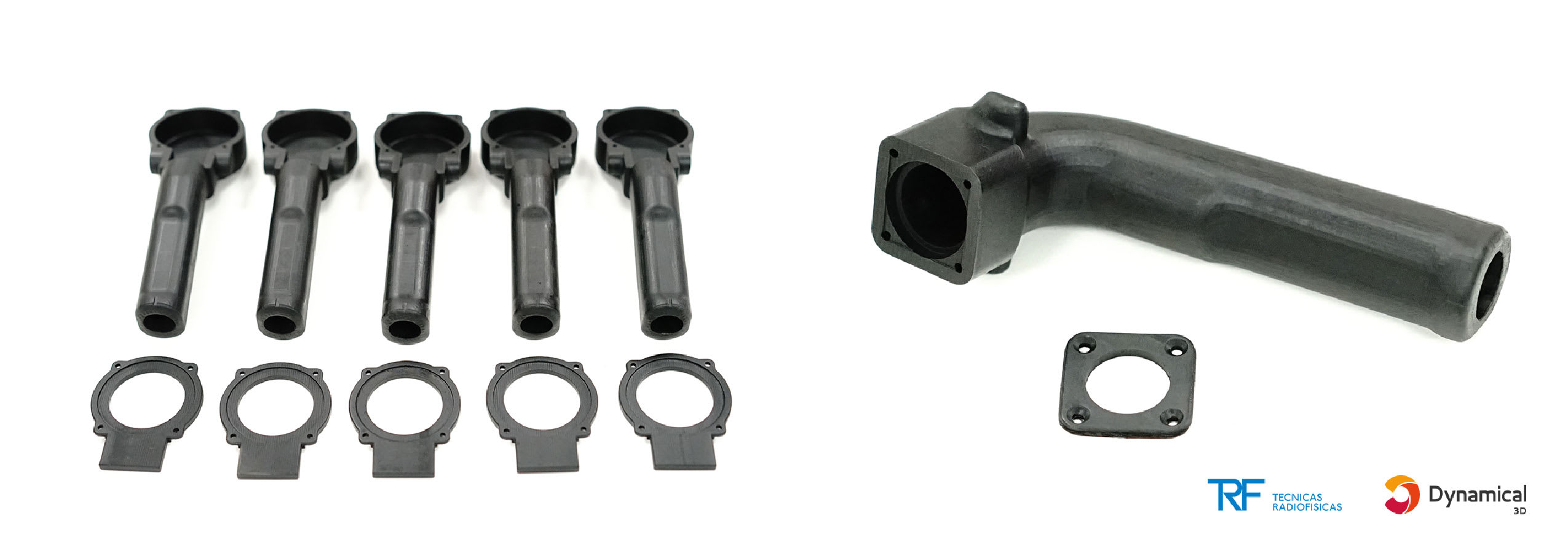Key Takeaways:
- Completed prototyping in one day with rapid design iterations
- Printed sets of five unique end-use parts with Carbon Digital Light Synthesis™ (DLS™) technology
- Carbon EPX 82, an epoxy material, meets the strict material requirements for ‘hot’ laboratory equipment
- Achieved 70% cost savings for short and medium run production with Carbon when compared to injection molding
Dynamical 3D, a Certified Carbon Production Network Partner, worked with Técnicas Radio Físicas (TRF) to produce radioactivity sensors on the Carbon additive manufacturing platform.
Dynamical 3D, Carbon’s first production partner based in Spain, is a pioneer in the 3D printing service bureau market. Using design, scanning, and 3D printing services, the Dynamical 3D team enables international companies to leverage the benefits of 3D printing technology at an affordable cost.
TRF, a medical physics consultancy firm also based in Spain, designs and implements medical physics projects in both the healthcare and science sectors. The firm manufactures various kinds of equipment for ‘hot’ laboratories, which are laboratories designed for use with radioactive substances. TRF currently designs parts for several projects involving radioactive substances, including for nuclear medicine, decay tank systems for liquid radioactive waste management, and cyclotron projects to support the production of radiopharmaceuticals and radiotracers.

Challenge:
Finding a flexible production technology for low-volume manufacturing
TRF conducted extensive research and experimentation around producing radioactivity sensors with upgraded designs and introducing them to the market this year. When looking for a production solution, TRF found that traditional manufacturing methods like injection molding were cost prohibitive given the high cost of tooling for short runs. The firm needed a flexible manufacturing solution that would allow them to conduct rapid design iterations and cost-effectively produce a variety of sensor parts in low volumes.
Solution:
Rapid design iteration at no additional cost
Dynamical 3D found Carbon’s Digital Light Synthesis™ technology to be the ideal manufacturing solution for TRF’s radioactivity sensor, as it enabled TRF to make multiple design modifications to several parts at no additional cost.

Carbon provides strong and durable 3D printing materials
TRF needed to create the sensor using a tough material that could withstand exposure to radioactive substances and fulfill the demanding requirements and certifications of a sector as demanding as the automotive industry. Dynamical 3D found that Carbon’s epoxy (EPX 82) material – a high-strength material with excellent long-term durability – met TRF’s material requirements. With mechanical properties comparable to lightly glass-filled thermoplastics, Carbon’s EPX 82 has the functional toughness required for a variety of high-performance parts such as automotive connectors, brackets, and housings.
3D print low volumes cost effectively
By using Carbon, TRF avoided the high cost of molding for short and medium production runs. In addition, Dynamical 3D optimized the production process by tightly nesting the sensor parts. TRF ultimately experienced 70% in cost savings by 3D printing their sensors using Carbon DLS technology instead of injection molding.

Low-volume production with Carbon
Dynamical 3D helped TRF redesign and produce its radioactivity sensor with Carbon DLS technology – enabling TRF to rapidly iterate multiple designs, meet strict material requirements, and experience impressive cost savings. At this time, Dynamical 3D has manufactured 50 assemblies and will be looking to increase production of the TRF radioactivity sensors based on demand.
Are you looking to cost-effectively manufacture parts in low volumes? Reach out to us at sales@carbon3d.com to learn how our technology can help your production efforts.